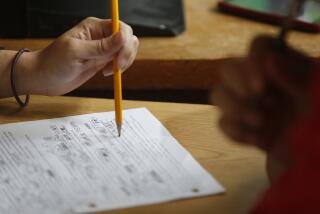Teaching Students Better Lessons
Anyone looking for no-cost, low-tech, frills-free and, most of all, effective ways to make education better would do well to consider a new Harvard University study on how students learn.
The three-year study found that modest changes in teaching and studying methods can produce real improvements in learning. For example, students who are asked at the end of each class to write a one-minute paper on “the big point you learned today” and “the main unanswered question you still have” benefit from having to think about the course’s central themes and organize their thoughts. Teachers benefit, too, from the feedback on how their ideas are getting across.
The study further found that students learned the most when they were given periodic quizzes and regularly required to write reports and make oral presentations. They learned more when given the chance to rewrite a term paper after a teacher had read and commented on it, and found that taking part in outside study groups of up to six people was a more effective way to learn than hitting the books in lonely isolation.
Such ideas are anything but new. Frequent tests to measure progress in, say, math and foreign-language classes are a staple of teaching. And many teachers demand frequent written reports and quizzes. But what’s particularly intriguing about the Harvard study is that its findings have a relevance that clearly extends beyond higher education: The approaches in teaching and studying that the report describes can be applied through most of the school years. Best of all, in this age of tight budgets, here are some ideas to improve learning and teaching skills that don’t require new schools or classrooms, expensive new laboratories or special equipment, or bigger staffs.
What’s needed, on the part of students and teachers alike, is a commitment to work a little harder each week. If the Harvard study is right, the payoff could be considerable.






